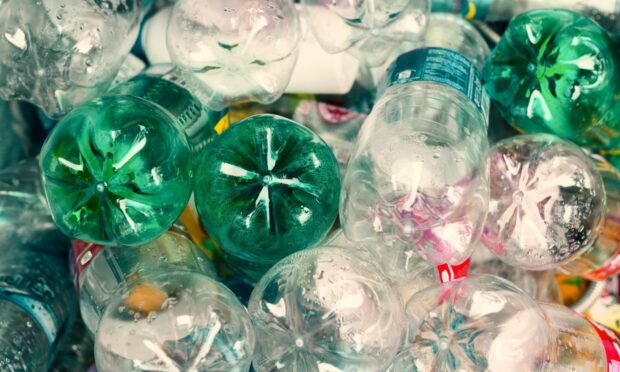A £22 million support package announced to help business owners ahead of the introduction of Scotland’s controversial bottle recycling scheme has been branded as “reeking of desperation”.
Under-fire Circularity Scotland said the cashflow support measures would address concerns, particularly for smaller producers of beverages subject to the 20p levy that will be added to every single-use can and bottle sold in Scotland.
READ: What is the deposit return scheme and why has it become so controversial?
Starting later this year, almost every bottle or can sold in Scotland will come with an extra 20p deposit charge as a part of new recycling rules brought in force by the Deposit Return Scheme.
In response to wide-spread criticism, Circularity Scotland, the body responsible for implementing the scheme, has announced a number of initiatives to address concerns.
This includes a pledge to remove the day one and month one charges for all producers, up to a threshold of three million units per year.
It is also providing two month credit terms on deposits and fees up to the same volume threshold to reduce the working capital impact on all producers.
Not enough
However, whisky consultant Blair Bowman, who has led a push against the new laws, doesn’t believe it goes far enough.
The former Aberdeen University student said: “It reeks of desperation.
“A letter has went out producers today, less than five working days before deadline.
“For some businesses, it might be the first time they’ve seen about DRS.
“It shows it’s not workable.
“The fact they’ve put out this package today and framed as a success and win for small businesses, it should’ve been in from the absolute beginning.
“They shouldn’t have been putting it in five days from the deadline.
It reeks of desperation.”
Blair Bowman
“It shows they are scrambling around, don’t know what they are doing and making it up as they go along.
“They are constantly and consistently moving the goalposts which is not workable for any business in any situation in any sector and it’s not how we should be treated as a drinks industry in Scotland.”
Circularity Scotland has also confirmed that it will be offering the option to use self-adhesive barcode labels for producers placing less than 25,000 units per year of a specific product on to the Scottish market which will prevent the cost of changing packaging to introduce new barcodes.
Help cashflow concerns
Circularity Scotland chief executive David Harris said: “We know that smaller producers, in particular, have been concerned about the cashflow impacts of the scheme, and these measures will address those concerns.
“Circularity Scotland has successfully secured over £100 million of third-party funding to establish the infrastructure of the deposit return scheme, with only minimal up-front funding from the very largest producers.
“This funding approach allows producers both large and small to benefit on equal terms from this investment in world-class infrastructure and leading-edge technology and only pay their share of the costs once the scheme is in operation.
“We have already announced reductions in producer fees of up to 40%, while also being able to offer the highest return handling fees of comparable schemes anywhere in the world.
“These additional support measures further demonstrate our confidence in being able to deliver ongoing operational efficiencies once the scheme has gone live.
“We are committed to ensuring that the deposit return scheme works for Scotland, is cost effective for business and helps protect our environment for generations to come.”
‘Clarity and confidence’
Circular Economy Minister Lorna Slater said: “This is a big and welcome change that responds directly to many of the concerns that have been raised, particularly those from smaller producers like craft brewers.
“It addresses initial cash flow challenges, and provides a pragmatic and simple solution to the issues raised around barcodes for smaller product lines.
“This is a package that gives businesses the clarity and confidence they need to be part of Scotland’s deposit return scheme.”



Conversation